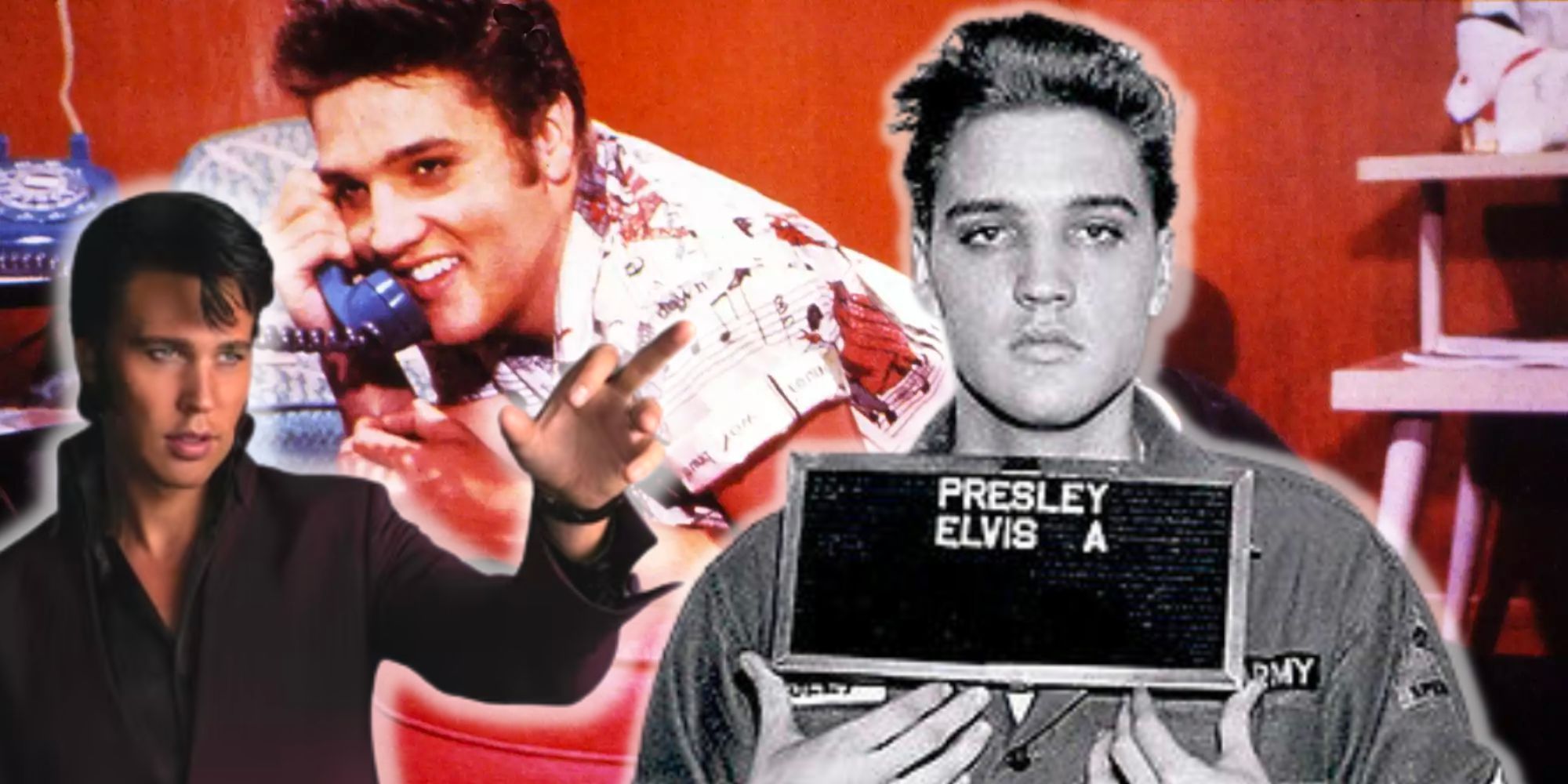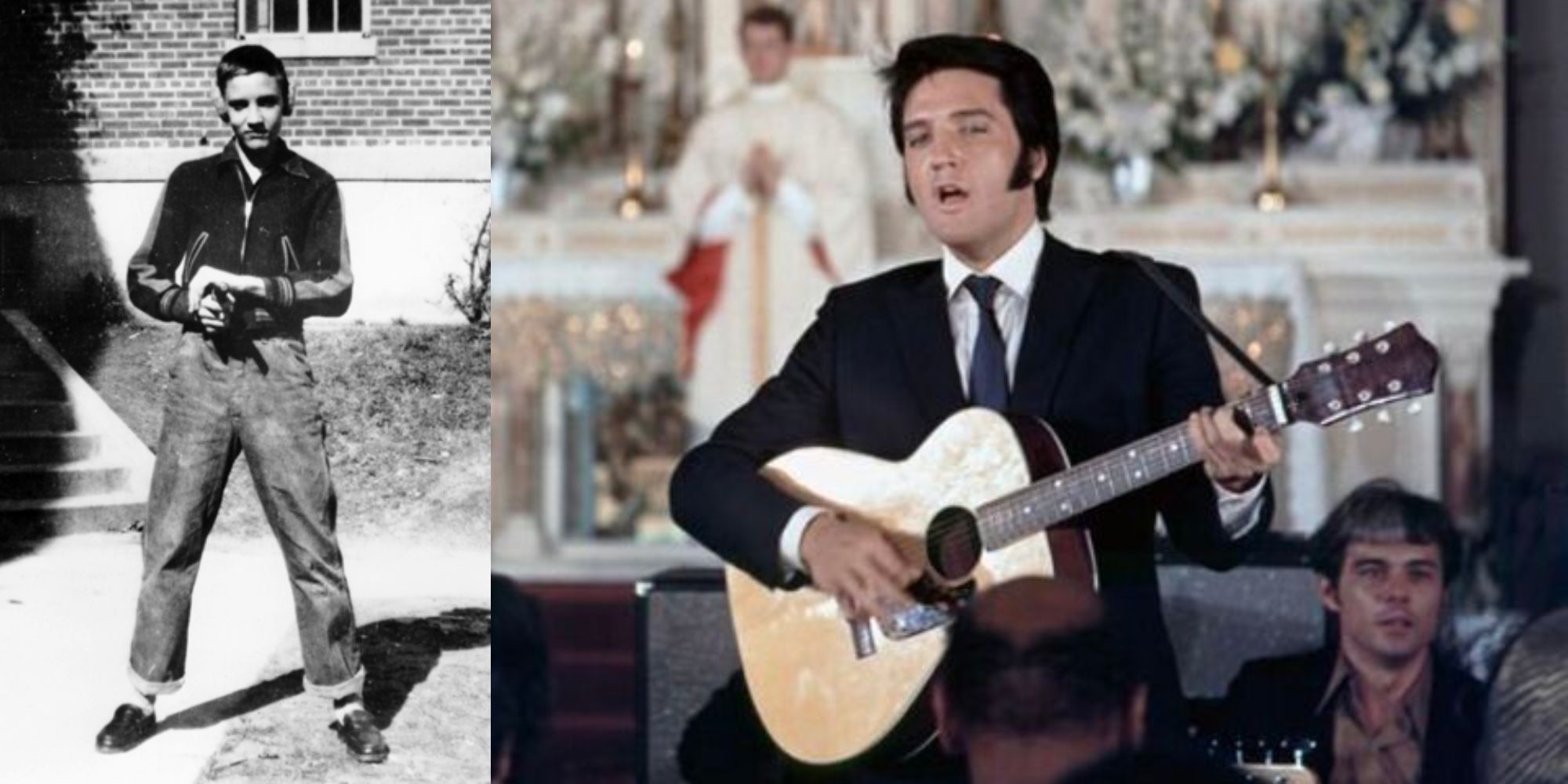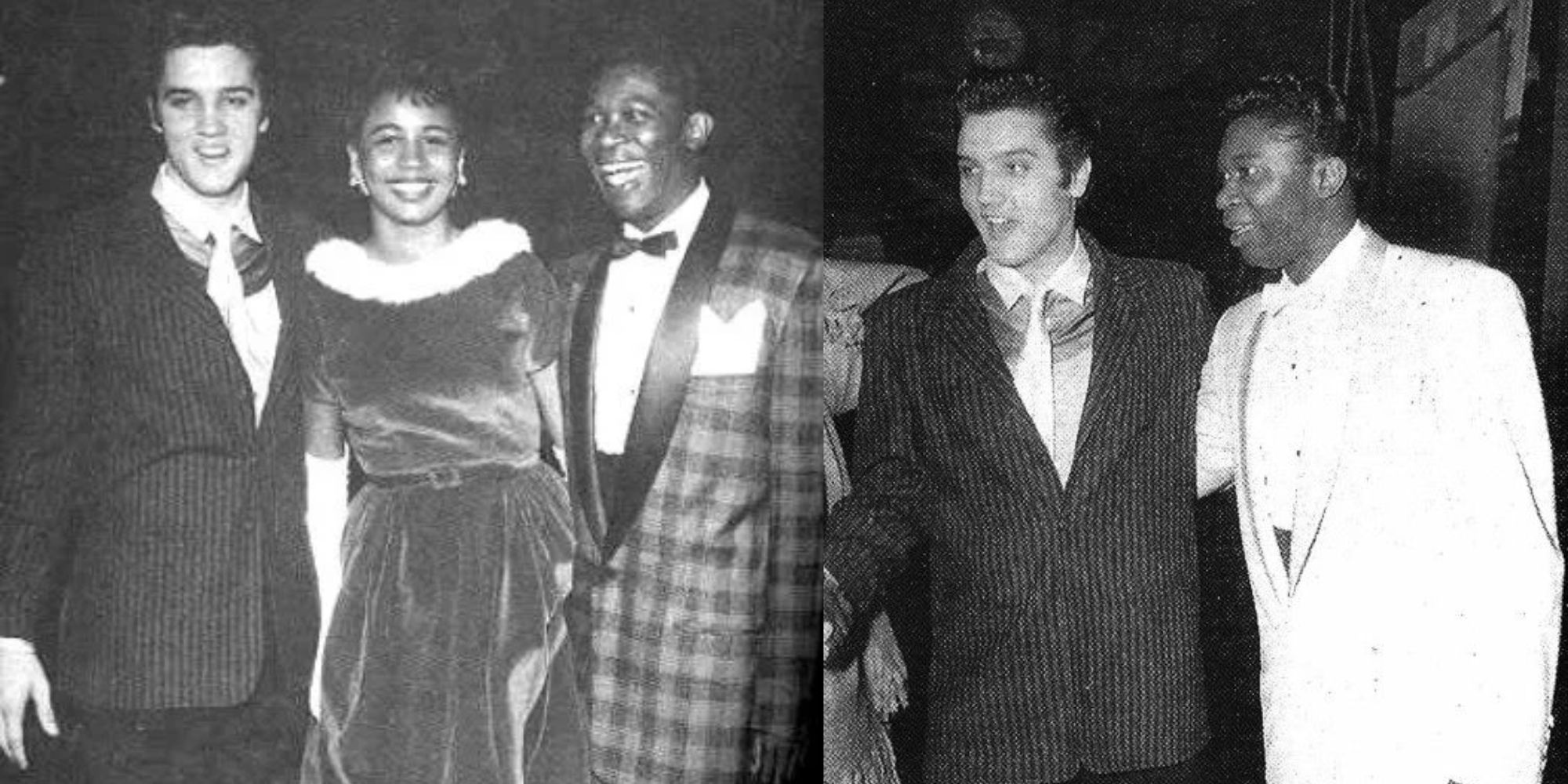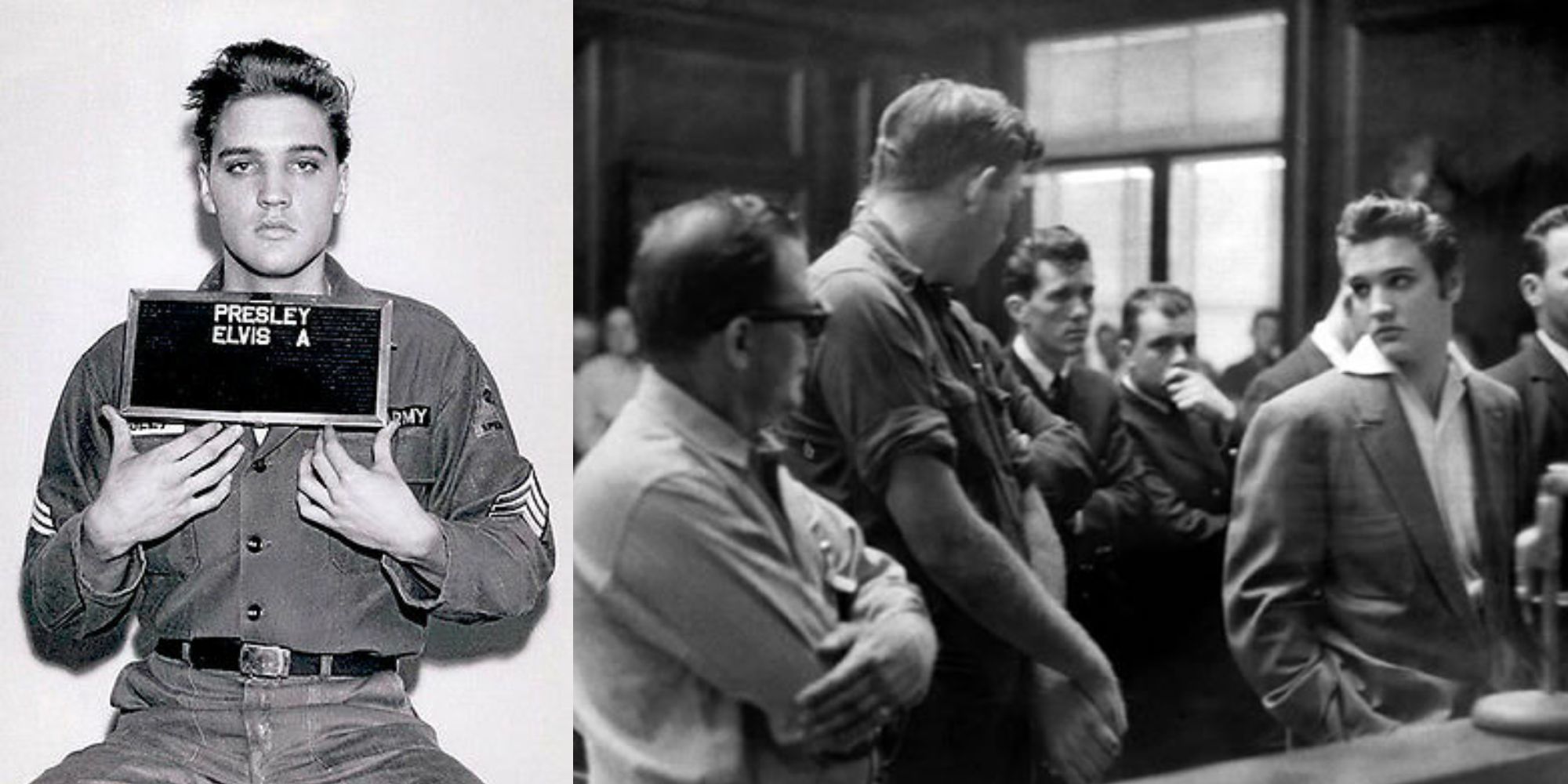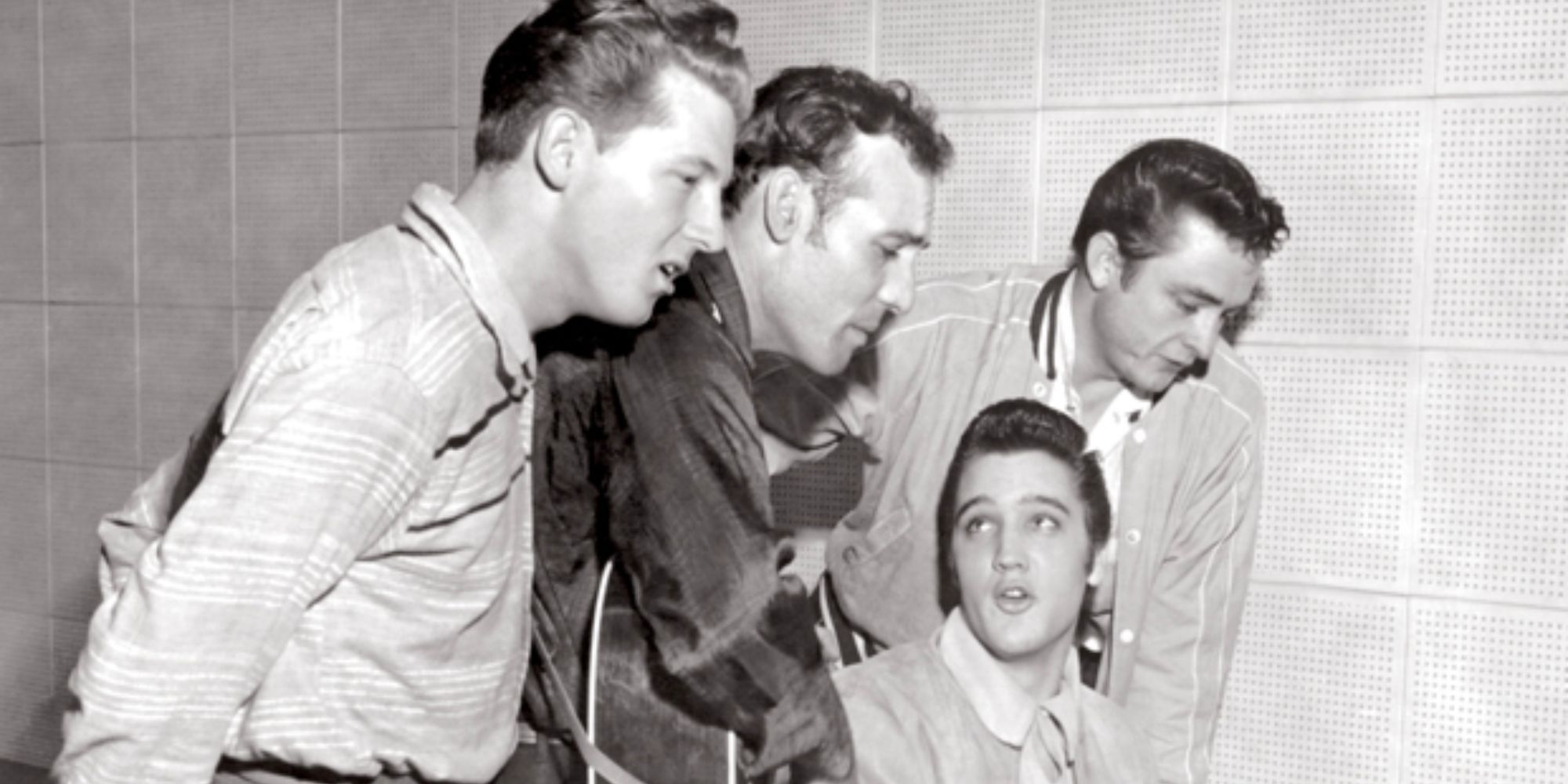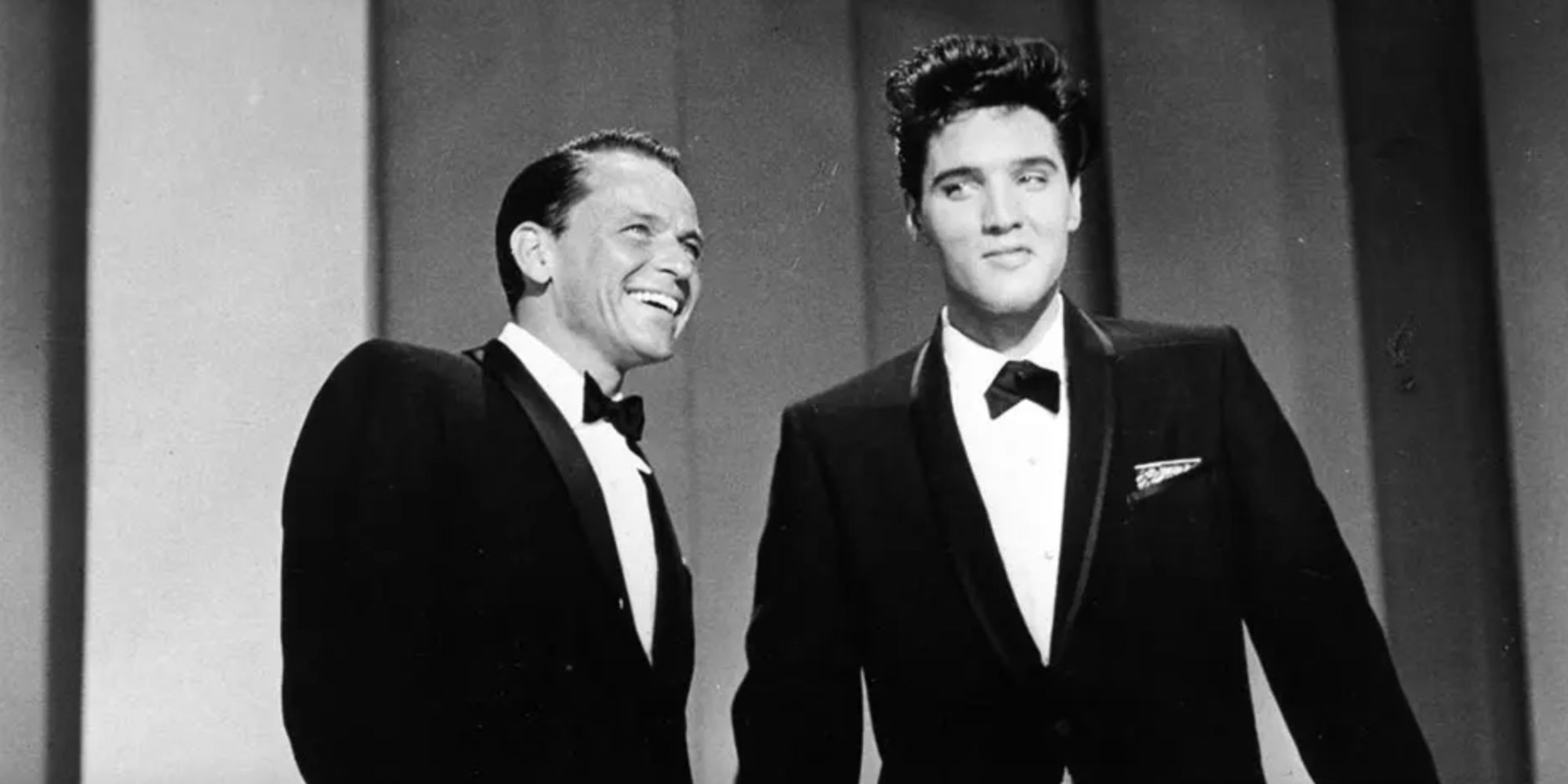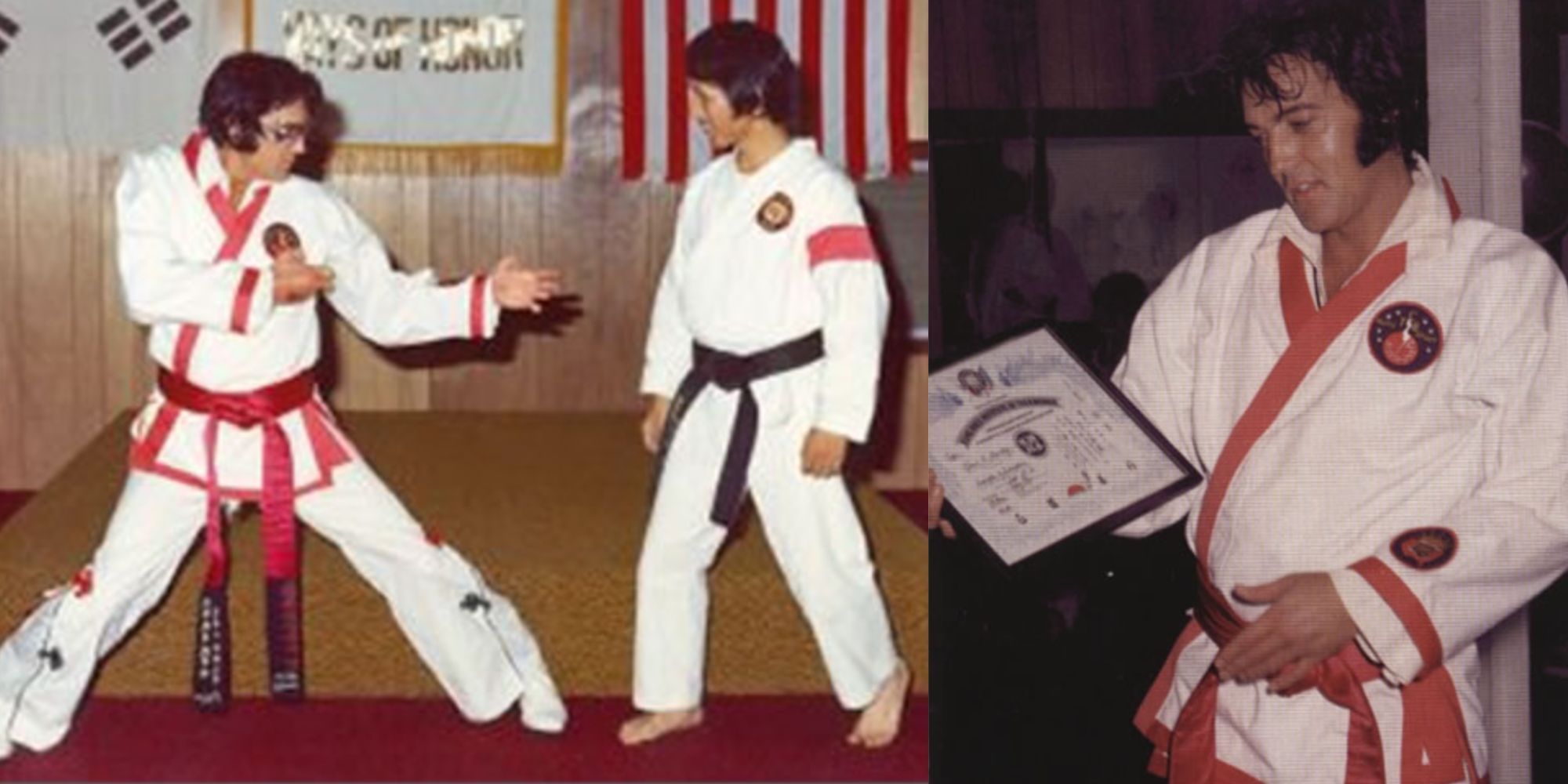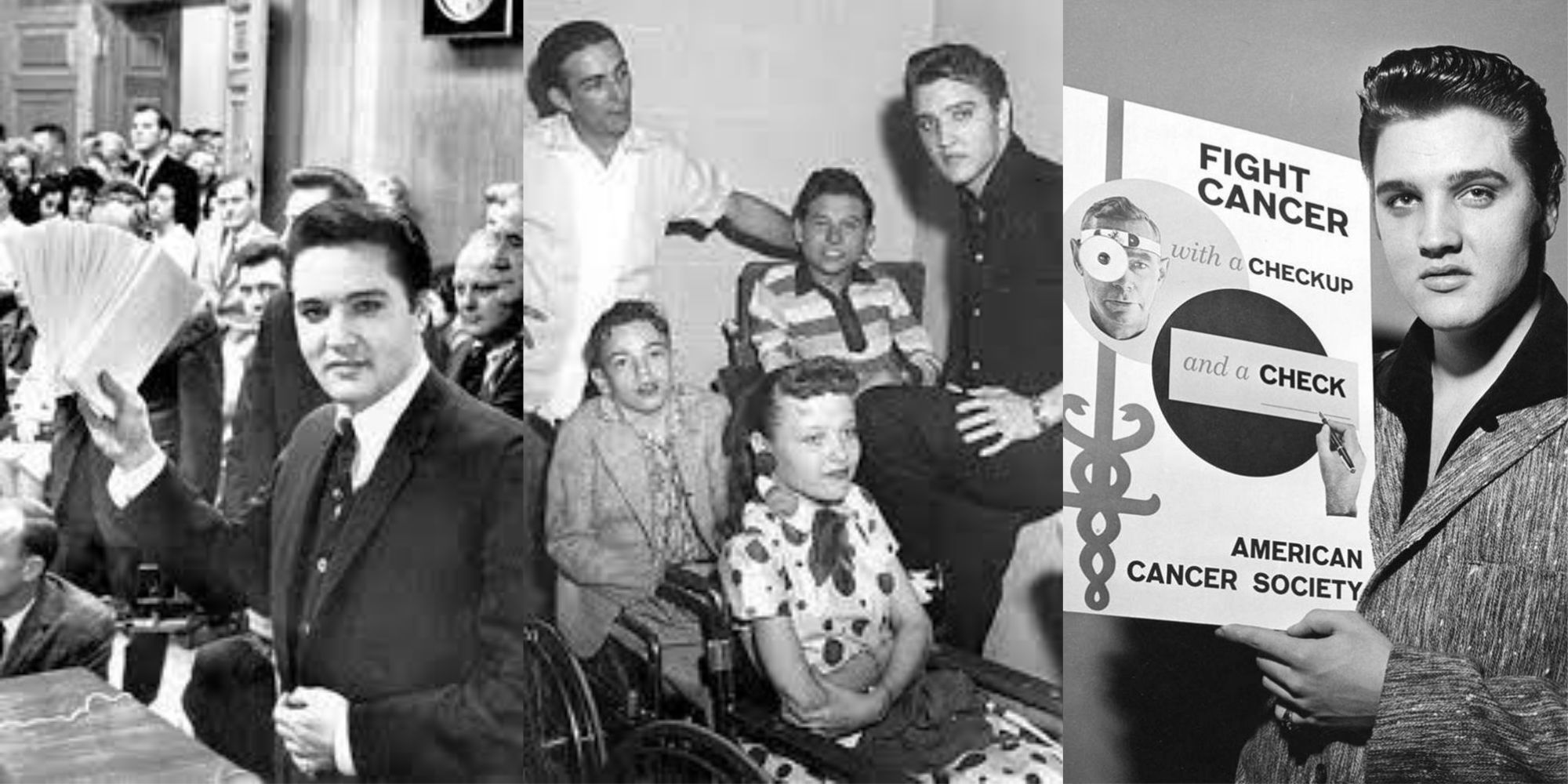Baz Luhrmann's Elvis is already a hit at the global box office, and while the detailed retelling touched on the most significant parts of the late singer's life, there were a few omissions that add another layer to the King's story.
While it's impossible to cover every aspect of a person in a biopic, especially within the time constraints of a feature film, the short life of Elvis was filled with controversy, collaborations, and countless wild adventures.
Elvis' Gospel Recordings
While the film does a beautiful job of portraying Elvis' deeply held belief system and life-long appreciation for Black artists, it cannot be emphasized enough how much he adored Black Gospel. During his career, he released four long play (LP) albums, one extended play (EP) album, and six single Gospel records.
As a child, he would often sneak from the white services to attend the services of the local African-American community. Here he bore witness to soul music in its purest form and learned to embrace the power that it possessed. The three Grammys that Elvis earned during his life were all for Gospel records.
Support of Black Artists
Never one to associate with the white artists who had previously stolen Black records to claim as their own, Elvis regularly praised and highlighted those he considered the true greats. He was quoted "A lot of people seem to think I started this business. But rock ‘n’ roll was here a long time before I came along. Let’s face it: I can’t sing like Fats Domino can. I know that."
B.B. King has often defended his old friend, and both Little Richard and James Brown, all icons in their own right, have praised Elvis for opening a door that didn't exist before. The fusion of styles that garnered his fame essentially readied a white audience for Black talent. Prior to Elvis' popularity, Black music was confined to Black stations, and the freestyle nature of blues and soul were looked down upon. It's hard to comprehend now that these genres are recognized as defining modern music, but that's the reality of segregation.
The Arrests
Elvis' mugshot is famous but few know how it came about. A young and rebellious Elvis was actually arrested twice early on in his career. The first time was in 1955. Elvis was booked for driving his pink Cadillac 20 miles over the speed limit in Louisiana. He posted a $25 bond and was released, appearing in court the next day.
In 1956, Elvis was picked up a second time along with two other men for disorderly conduct, battery, and assault. Allegedly, the singer had pulled up to a Gulf gas station and was swarmed by fans. He obligingly began signing autographs but the garage owner and his employee became enraged by the spectacle. When Elvis refused to move his car, one of the men shoved him and a fight broke out. When the three appeared in court, the charges against Elvis were dismissed and the two men were fined.
Million Dollar Quartet
On December 4, 1956, something incredible happened at Sun Record Studios in Memphis. Carl Perkins, who had a recent hit with 'Blue Suede Shoes' was in attendance with his band to record some new material. The owner, Sam Phillips, called in his latest protégé Jerry Lee Lewis to play piano, still unknown outside of Memphis at the time. Early in the afternoon 21-year-old Elvis Presley came to visit his former management. He and Johnny Cash listened back to the recordings and decided to join for an impromptu jam session.
Jack Clement, as the sound engineer of the day, remembered thinking to himself "I think I'd be remiss not to record this," so he did. In 1969 Shelby Singleton purchased Sun Studios and discovered the recording among 10,000 hours of tape. It has since been released multiple times with different names, but the most complete version was produced by RCA in 2006 as a 50th-anniversary special.
The Feud with Frank Sinatra
Much to Elvis' disappointment, Frank Sinatra was an early opponent of his rock and roll style, labeling it "phony and false" and claiming that it fostered "universally negative and destructive directions in young people".
Despite Sinatra's biting critique, Elvis responded with grace, stating "I admire the man... He has a right to say what he wants to say. He is a great success and a fine actor, but I think he shouldn’t have said it. This is a trend, just the same as he faced when he started years ago. I consider it the greatest in music." In time, Sinatra softened and upon Presley's discharge from the army, he was invited to appear on a special titled The Frank Sinatra Timex Show: Welcome Home Elvis. The two went on to become dear friends.
Karate King
When Elvis was stationed in Germany he had his first exposure to the martial art developed in the Ryukyu Kingdom, Karate. Under a German Shotokan stylist named Juergen Seydel he trained at his off-base housing. He also used some of his leave to travel to Paris to train under Tetsugio Murakami, one of Japan's top Shotokan stylists. In July 1960 he became a black belt.
Elvis' passion for Karate continued throughout his life. He trained from 1970-1974 under Master Kang Rhee in Memphis and insisted he wanted to be part of a class and to be treated equally. He also worked as an instructor for a time. Elvis was awarded his 7th Degree Black Belt in 1973, and 8th Degree in 1974. He was also at times able to test and promote students of lower rank. Many friends referred to this period as his golden years of peace and spiritual contentment.
A Generous Man
Little was publicized about Elvis' charity - often at his request. The singer valued his privacy, and through his faith knew the importance of giving back. Most of the donations he made were kept anonymous. As quoted in a Graceland display, "In 1961, he started a tradition of distributing checks to more than 50 charitable organizations, donating more than $100,000 a year. He supported St. Jude Children’s Hospital in Memphis. He also gave anonymously. He paid off people’s debts and mortgages. We can never really know the full extent of Elvis’ charity."
Following in her father's footsteps, in 2007 Lisa Marie founded Presley Charitable Foundation and established the Presley Place-New Orleans, a transitional house for homeless families. The foundation also offers free counseling, daycare, housing, and other tools to help the homeless and struggling get back on their feet. Priscilla Presley is an ambassador of the Dream Foundation, which helps to fulfill the dreams of terminally ill adults.
What Happened to Graceland?
Under the heavy weight of financial stress after Elvis' passing, Priscilla feared they would have to sell Graceland. With over half of the estate's annual $1 million going to the upkeep of the mansion and grounds, the home was proving a costly asset. In a genius move that delighted fans the world over, the home was converted into a museum and opened to the public on June 7, 1982.
Graceland was declared a National Historic Landmark on March 27, 2006,, and draws 600,000 tourists each year, a considerable help to the businesses of Memphis. The home remains preserved, exactly how Elvis had kept it during his life, each room a monument to his eccentric taste, and memories, sad and joyful. Elvis, his parents, and his grandmother are buried beside each other in the meditation garden. Lisa Marie Presley maintains 100% ownership of the home and contents but has allowed for continuous public tours and viewing.

